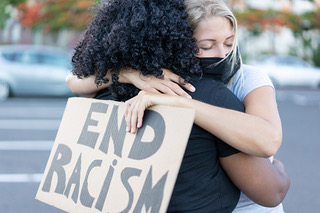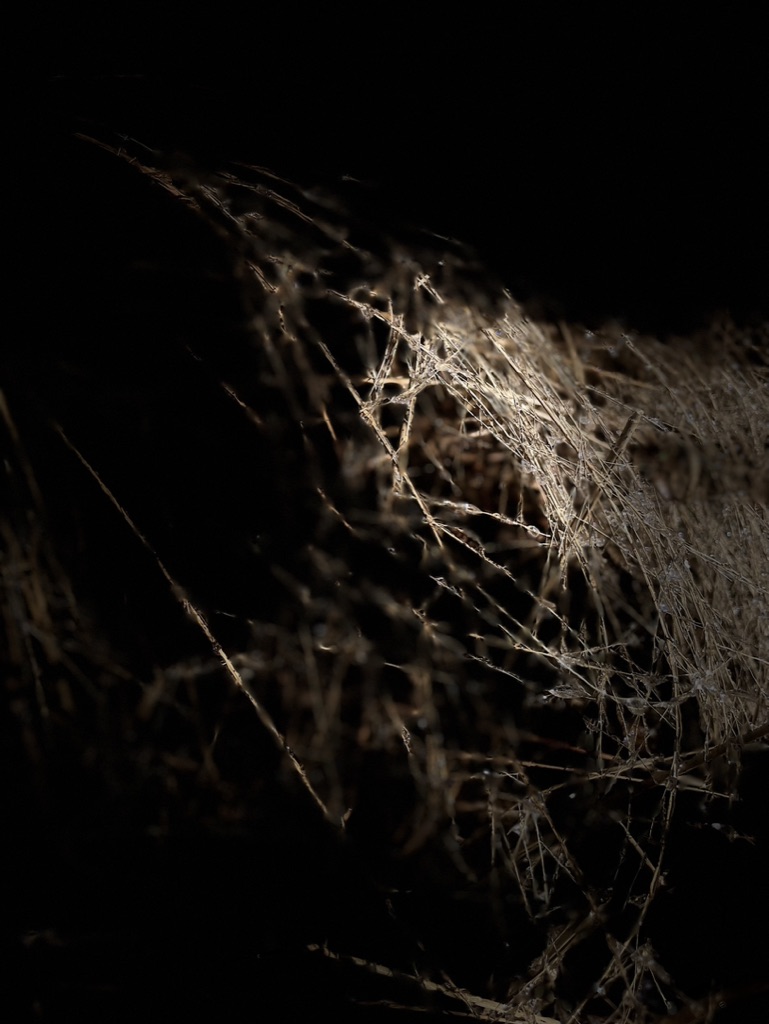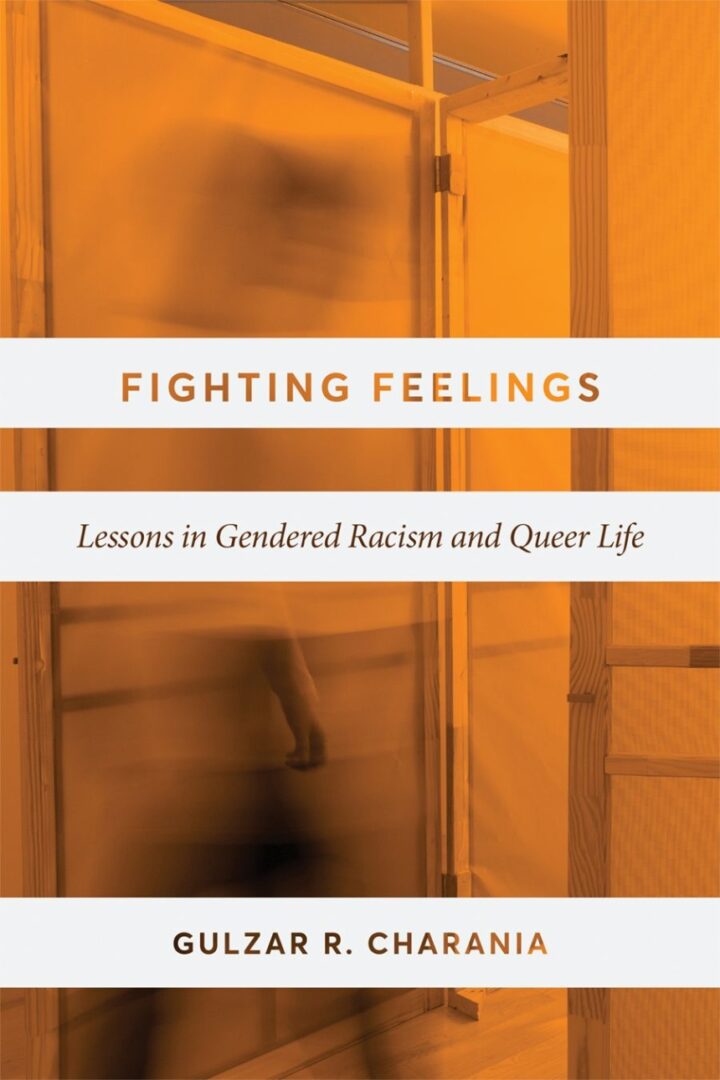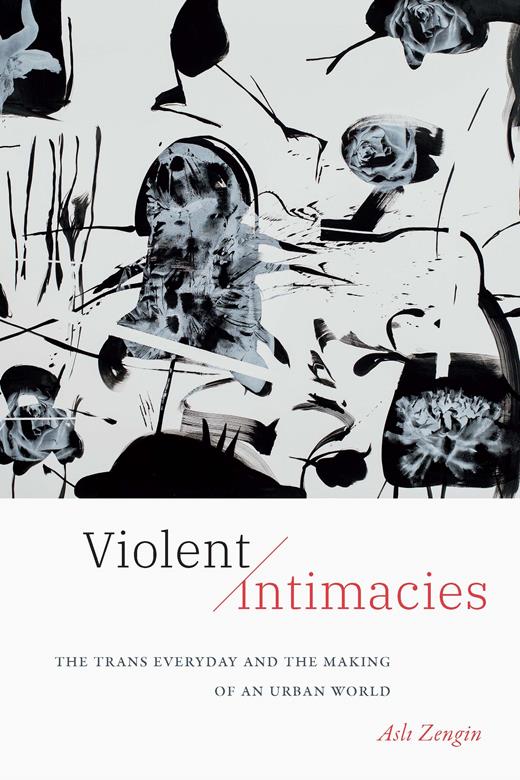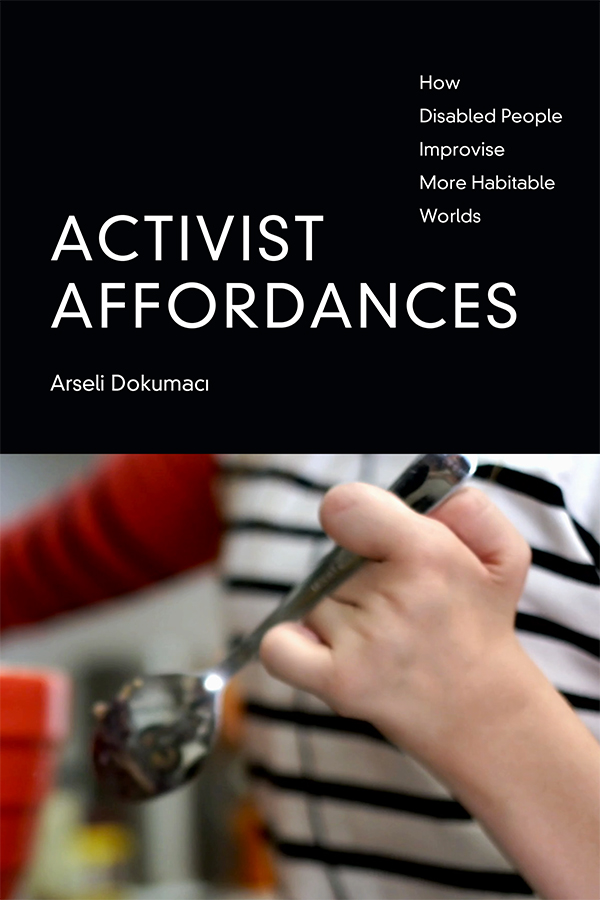Reflecting on this moment of “crisis”—an inadequate word to capture the scope, the cost, and the history of the present violences—we consider what “building something small” might look like, thinking complexly about the immediacy of people and our needs.
Issues
Baldwin’s Balls: Sensuality, Profanity, and the Testicular Fortitude to Reckon with Race
Both sensuality and profanity dwell within love’s truthful self-expression. James Baldwin’s oeuvre reads race relations in the United States, revealing a skewed balance between sensuality and profanity rectified through authentic sensual connections across racial lines. This essay introduces Baldwin’s work as an exemplar of world reading, an ingredient of cultural literacy, to argue that sensuality prevents society from dismissing negative emotions as merely symptomatic of race or class resentment. Centering on profanity, the argument relies on how Baldwin deftly constructs sensuality as an inversive emotional balm for healing the US race problem through the feminine energeia found in his pervasive testicular discourse.
Futurist Forensics: Indigenous Evidence, Cosmo-Epistemologies, and the New Red Order
This article critically engages with the emerging “media forensic” turn at the intersection of visual culture, new media practice, and humanitarian and political activism. This field purports to subvert dominant forensic and surveillant regimes, weaponizing these mediated modalities to document acts of humanitarian and political violence. Such practices have been widely celebrated for enhancing forms of legal and political accountability and justice. However, there are concerns that these practices may inadvertently mirror the state-sanctioned regimes of control and power they wish to expose, reinforcing settler-colonial histories of the forensic and evidentiary, whilst also excluding counter-hegemonic and experimental modes of emergent media investigation. To address these limitations, this article proposes a radical counter-history and praxis of the forensic, drawing on Indigenous epistemologies and critical decolonial thought. Analysing the work of the Indigenous media collective the New Red Order (NRO), the article argues that their ongoing Culture Capture project (2017–) exemplifies a counter-hegemonic mode of emergent media forensic practice. By asserting Indigenous epistemological agency over such modes of media investigation, the NRO challenges Western forensic practices’ hegemony. The article advocates for expanding the scope of media forensic work to include diverse publics, communities, and aesthetic-political practices that offer subversive, decolonial forms of evidentiary practice.
Practical Strategies of Disruption for Dismantling White Supremacy in Ontario’s Education System
This article examines the Ontario education system’s use of surface level practices intended to counter racism but that often fall short of creating authentic and sustainable change. Many schools across the province have focused their efforts on celebrating identity awareness days, weeks, and months, yet these initiatives largely reveal an apparent disconnect in understanding of the significant impact of white supremacy that is deeply embedded within the educational structural system. Stories from students, families, and community members reveal ongoing, often unintentional, acts of harm or violence against Indigenous, Black, racialized, and marginalized students, demonstrating a deep-seated failure to address systemic racism. The article explores the presence of harmful ideologies of white supremacy frameworks that permeate every facet of the education system, including the curriculum, communication, disciplinary actions, assessment, and institutional traditions and practices. By examining these issues, the article offers strategies for disrupting these structures, in order to dismantle white supremacy from the education system to support and empower Indigenous, Black, racialized, and marginalized students. By providing these practical examples rooted in a transnational solidarity lens, the article aims to empower educators to disrupt and dismantle white supremacy in the classroom and promote meaningful and long-lasting change.
Surviving in Eugenic Times: Disabled Artists’ Feelings about Their “Under-the-Table” Livelihoods
Launching from recent interest in disabled people’s livelihoods in the context of global Northern societies, this paper theorizes interview descriptions of livelihoods from 20 disabled, mad, and Deaf artists in Ontario, Canada. Drawing on a critical sustainable livelihoods framework, we observe that the lives of disabled artists play out in an ethos of neoliberal-ableism that has resulted in an accelerated impetus toward death for disabled people, specifically through the advancement of Medical Assistance in Dying (MAiD). Interviews reveal themes of disposability, dignity, and art-as-resistance that are deeply entrenched in disabled artists’ livelihood experiences and the complexities of their artistry and involvement in wider, contemporary disability arts communities. This paper responds to Stienstra and Lee’s 2019 call in Societies to begin “widening our gaze in concrete terms” as we explore disabled people’s livelihoods, contending that discussions of disabled artists’ livelihoods must be situated in the social and material realities of their current contexts. We argue that the lived experiences of disabled people in Canada are also death experiences, and therefore a sustainable livelihoods approach to disabled artists’ experiences must account for Canada’s necropolitical realities.
Subjunctive Grief: Affective Methodologies for Articulating Futures
Grief is typically portrayed as an individual experience that is a response to loss and provides the basis for personal growth; grief is something to work through, and, ideally, to benefit from, and represents a state change. But might it be possible to conceptualize grief of the future, a subjunctive grief that is based in speculation about change that brings that change into the present? The subjunctive invokes the wished for, the imagined, and the possible, and subjunctive grief serves to work through the experience of the future in the present. Focusing on debates around medical aid in dying and the parenting of a child with childhood psychosis, I consider grief in the subjunctive tense and how anticipation of change affects practices in the present. Attending to subjunctive grief provides an affective methodology that demonstrates interdependency and how conceptions of intimacy, love, and caregiving shape the experience of grief in the future tense.
What Should We Do with Our Depressions? Feelings, Biology, Politics
The aim of this contribution is to explore some of the ways in which cultural studies, and more specifically affect studies and feminist new materialisms, have dealt with the problem of depression. My main argument is that, through these approaches and discussions, depression becomes a powerful site to delve into crucial controversies within affect theory and new materialisms, such as the distinction between affect and emotions and the related dichotomy between biology and culture, or the proper place of critique in contemporary thought. One glaring entry point to these controversies is the topic of antidepressants. In the 1990s, the so-called Decade of the Brain, a new generation of antidepressants took hold of the public imagination in the United States: the selective serotonin reuptake inhibitors, SSRIs, with Prozac (fluoxetine) on top. The 1990s also witnessed the emergence of both affect theory and new materialisms, and with them the shaping of some deep and enduring controversies. Indeed, almost twenty years later, these entangled debates were reenacted in two books: Ann Cvetkovich’s Depression: A Public Feeling (2012), originally prompted as a critical response to depression memoirs, and Elizabeth A. Wilson’s Gut Feminism (2015), strongly critical of what she considers to be the usual critique of antidepressants in cultural studies. Are antidepressants taking us closer to the true psychosomatic nature of bad feelings, or are they an insidious form of biopower? How should cultural studies, feminist, and queer work approach them? What do they say about depression and negative feelings in general? Are our feelings of distress mainly visceral and biological, or are they socially and culturally determined, or both? And how? How do the 1990s and 2010s controversies live on today?
The Spectre of Antisemitism
In this essay, I argue that the rhetoric behind “not in my name” actually mobilizes the same gesture as the popular Zionist move to innocence. While anti-Zionist Jews preface our solidarity with Palestine through an account of our own experience with suffering and persecution, so too does the Zionist Jew put that same suffering to use, albeit to opposite means. In other words, there is a fine line between the rhetorical purpose of anti-Zionists’ saying that genocide is not a Jewish value and Zionists’ using this same rhetoric to label Israeli violence as self-defense and not genocide. In fact, it is not a stretch to suggest that anti-Zionism’s re-emphasis on Jewish values as the means by which we validate Palestinian struggle is not a stand against Jewish supremacy but rather an appeal for it.
Marronage and its Aporias
In much proto-nationalist discourse and academic and historical work, marronage has come to represent an open receptacle of competing narratives and desires in the history of slavery, revolt, and Blackness. Paying attention to the ways marronage is portrayed across the different nations and territories of the Caribbean reveals grand narratives of heroism, the formerly enslaved outsmarting and outlasting planters and colonial officers in the hills and mountains of the West Indies and the swamplands of the US South. Through these narratives, this article argues, the maroons are mythologized both as figures of resistance against the racial terror of slavery and as the founding fathers of the post-Abolition, post-Independence Caribbean nation-state. These heroic yet limited depictions of marronage, though important in showing the ways the maroons were able to unsettle the plantocracy, fail to reckon with the impossibility of redress in the afterlives of slavery and the limits of sovereignty in the wake of the non-event of Emancipation. Marronage offers neither a clean break from slavery nor an easy path beyond, yet the proto-nationalist accounts of its praxis that I explore here insist on turning the incapacity of the enslaved into the capacity—to resist, to survive—of the heroic maroon. Through its calculated erasure of slavery, the marronage produced in these narratives generates its own set of aporias, pointing us in the direction of freedom but reminding us, at the same time, of its impossibility. What is at stake in this article is not an exploration of the future of marronage but the exploration of its past and its supposed break from slavery, as well as an interrogation of the ideals of Black resistance and Caribbean sovereignty and freedom that the heroic maroon is tasked with representing.
Review of Fighting Feelings: Lessons in Gendered Racism and Queer Life by Gulzar R. Charania (University of British Columbia Press)
In Fighting Feelings: Lessons in Gendered Racism and Queer Life, Gulzar R. Charania explores the gendered racialization of women of color through a plethora of interviews with her participants, paying specific attention to the intersection of identities that these women hold such as gender, race, sexuality, age, and socio-economic status. Charania centers the thoughts and experiences of racialized Black and women of color feminists to provide her readers with critical tools to navigate the lived experiences of racialized women while also acknowledging the violence of dominant narratives entrenched in white supremacy. By attending to the practices of scholars and theorists as well as the lives of her participants, Charania urges readers to reconsider the convergence of gender and sexuality in racialized hierarchies.
AI Literacy and the Changing Digital Political Landscape
Delores Phillips and Cultural Studies Association’s New Media and Digital Cultures Working Group Co-Host Reed Van Schenck discuss AI literacy, digital politics, and the 2024 US presidential election with authors Elizabeth Losh (William and Mary) and Rita Raley (UC Santa Barbara). This podcast is accompanied by a scholarly commentary by Stefania Milan.
Review of Marx for Cats by Leigh Claire La Berge (Duke University Press)
Leigh Claire La Berge’s Marx for Cats reimagines the history of capitalism by analyzing archival documentation about felines. By updating bestiaries to include contemporary criticism of capitalism, La Berge positions cats as the key to an economic revolution. While the title and cover suggest a playful, possibly unserious analysis, La Berge carefully constructs a detailed history from feudalism to capitalism to point readers toward an animal-friendly future that reconsiders power structures and dares to imagine a world beyond capitalism.
Review of Violent Intimacies: The Trans Everyday and the Making of an Urban World by Aslı Zengin (Duke University Press)
Aslı Zengin’s Violent Intimacies theorizes the fraught encounter between the Turkish state and its trans subjects. Introducing the analytic framework of “violent intimacies,” Zengin advances two main claims: structural violence unfolds through intimate contact with gendered bodies, and trans women, in turn, confront this violence with intimate practices of resistance. Zengin’s work marks a significant intervention within trans studies. She pays close attention to the materiality of the body as the location where violence is both enacted and contested—a welcome departure from the tendency towards abstraction in trans theoretical production. She also pushes the field in transnational directions to address experiences of gender transgression beyond North America and Western Europe. A rich ethnography of trans life in Turkey, the text depicts everyday scenes of violent intimacies across several interpersonal and institutional settings: the street, police, medicine, law, and family. Violent Intimacies offers a vibrant account of Turkish trans women who—faced with state neglect and social exclusion—envision alternative ways of building worlds and sustaining life.
Review of Producing Sovereignty: The Rise of Indigenous Media in Canada by Karrmen Crey (University of Minnesota Press)
Karrmen Crey’s Producing Sovereignty explores the rise of Indigenous media in Canada since the 1990s, focusing on the intersection of cultural production, institutional influence, and Indigenous sovereignty. Using documentary and non-fiction films as case studies, Crey examines how Indigenous creators navigate and challenge colonial structures, using media as a tool for asserting identity and autonomy.
Review of Activist Affordances: How Disabled People Improvise More Habitable Worlds by Arseli Dokumacı (Duke University Press)
Activist Affordances: How Disabled People Improvise More Habitable Worlds by Arseli Dokumacı builds upon theories of affordances through the concept of “activist affordances,” which describes the “performative microacts/-arts through which disabled people enact and bring into being the worlds that are not already available to them, the worlds they need and wish to dwell in” (5). Activist Affordances takes a non-Westernized view of disability that makes room for the complexities of pain, illness, and the nonhuman world. Dokumacı’s Activist Affordances is a necessary and fresh expansion of disability—beyond the Western conception of the term—that encompasses the disablement of other species in order to resist human exceptionalism, and to better address the destruction colonization, racialization, and capitalism has wrought on the earth and its inhabitants. Activist Affordances is a widely applicable piece of scholarly literature that offers strategies for survival in our increasingly precarious world.

